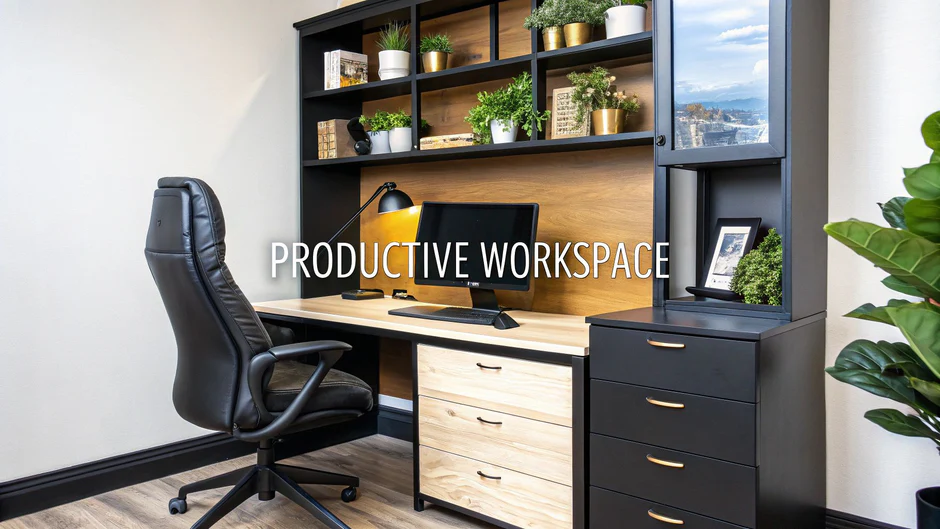In today’s fast-paced work environment, the line between being busy and being productive is often blurred. Many professionals equate a packed schedule or constant activity with efficiency. However, being busy doesn’t necessarily mean you’re getting things done effectively. In fact, constant busyness without clear results can be a sign of poor time management or misplaced priorities.
Understanding the difference between being busy and being productive is crucial for professional growth and maintaining long-term success. Let’s explore how to identify each state and how to shift your focus toward genuine productivity.
What Does It Mean to Be “Busy”?
Being busy typically refers to the state of always being occupied — juggling multiple tasks, attending endless meetings, replying to emails, or switching from one activity to another without clear direction. A busy person is often overwhelmed, stressed, and working long hours, yet struggling to see meaningful progress.
Some signs of busyness include:
- Always saying “yes” to new tasks or requests
- Frequently multitasking without completing anything
- Constantly feeling rushed or behind schedule
- Spending more time reacting than planning
- Struggling to find time for strategic thinking
While these actions may give the impression of hard work, they often lack a clear focus on results.
What Does It Mean to Be “Productive”?
Being productive, on the other hand, is about achieving meaningful outcomes. Productive professionals focus on priorities, manage their time intentionally, and consistently deliver quality results without unnecessary stress.
Key traits of productive people include:
- Prioritizing tasks based on importance and impact
- Saying “no” to tasks that don’t align with their goals
- Working with focus and minimal distractions
- Delegating or automating low-value activities
- Taking breaks and maintaining a healthy work-life balance
Productivity isn’t about doing more — it’s about doing what matters most, efficiently and effectively.
Busy vs. Productive: A Side-by-Side Comparison
| Behavior | Busy | Productive |
|---|---|---|
| Focus | Quantity of tasks | Quality of results |
| Task management | Multitasking often | Prioritizing and batching |
| Time usage | Always working | Scheduling strategically |
| Response to interruptions | Reactive | Proactive and intentional |
| Results | Little to no progress on key goals | Tangible, impactful progress |
| Decision-making | Constant yes to new work | Selective and purpose-driven |
Understanding this contrast is the first step toward improving your professional performance.
Why Being Busy Can Be Dangerous
Remaining busy for the sake of looking or feeling productive can lead to several negative consequences, such as:
Burnout
Constant motion without rest drains mental and physical energy. When you’re always working but rarely achieving, it leads to frustration and burnout.
Poor Work Quality
Rushing through tasks or multitasking can reduce focus, increasing the risk of mistakes and lower-quality output.
Missed Opportunities
When your schedule is always full, you miss chances to reflect, learn new skills, or engage in strategic thinking that could lead to real growth.
Lack of Clarity
Busyness clouds judgment. Without stopping to evaluate what truly matters, you can waste time on tasks that don’t support your goals.
How to Shift from Being Busy to Being Productive
If you find yourself constantly busy but not making real progress, here are practical steps to help you transition into a more productive mode:
1. Set Clear Goals
Productivity begins with clarity. Define your short-term and long-term goals. Break them down into actionable tasks and make sure every item on your to-do list serves those goals.
2. Prioritize with Intention
Use tools like the Eisenhower Matrix or ABCDE method to rank tasks by urgency and importance. Focus on high-impact tasks rather than just urgent ones.
3. Time Block Your Schedule
Instead of working reactively, assign specific time slots for focused work, meetings, breaks, and deep thinking. Avoid overbooking your day.
4. Eliminate or Delegate Low-Value Tasks
Recognize tasks that don’t need your attention and either remove them or delegate to others. Productivity increases when you concentrate on what only you can do best.
5. Learn to Say “No”
A busy schedule often stems from people-pleasing. Saying “no” to non-essential requests protects your time and energy for more valuable work.
6. Minimize Multitasking
Multitasking reduces concentration and efficiency. Focus on one task at a time to complete work faster and with better results.
7. Take Breaks and Recharge
Rest isn’t laziness — it’s strategic recovery. Short breaks improve focus, while proper sleep and downtime fuel sustained performance.
8. Measure Results, Not Hours
Instead of tracking how long you worked, track what you accomplished. Celebrate progress that brings you closer to your goals, regardless of the time it took.
Real-Life Example: Busy vs. Productive
Imagine two employees: Sarah and James.
Sarah fills her day with back-to-back meetings, constantly checks emails, and works late every night. Despite her effort, her project deadlines keep slipping, and she feels overwhelmed.
James starts each day reviewing his priorities. He sets aside blocks of time for focused work, limits meetings, and automates repetitive tasks. He finishes projects on time, has more energy, and consistently receives positive feedback.
Both are hardworking, but James is productive — while Sarah is just busy.
What Companies Value Most
Modern organizations recognize that productivity — not busyness — drives results. Employers are increasingly valuing professionals who:
- Think strategically and solve problems
- Deliver high-quality work consistently
- Manage time and energy wisely
- Collaborate effectively and add value to teams
Simply working more hours doesn’t guarantee recognition or advancement. Results matter most.
Final Thoughts: Choose Productivity Over Busyness
Being busy can feel satisfying in the short term — it gives the illusion of progress. But over time, it leads to burnout and stagnation. Productivity, in contrast, is purposeful and sustainable. It allows you to move toward your career goals with clarity, control, and confidence.
So, the next time you feel overwhelmed by tasks, ask yourself: Am I being busy, or am I being productive?

